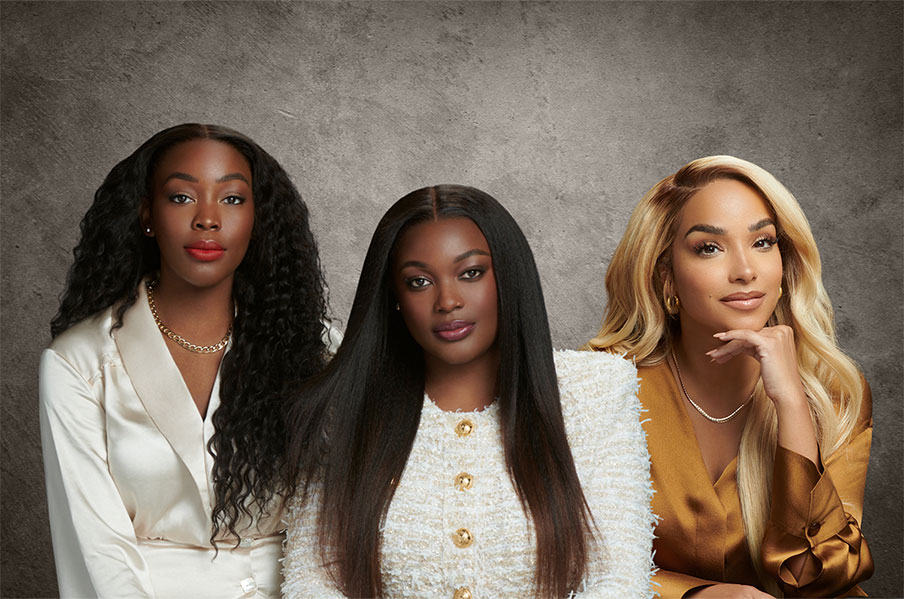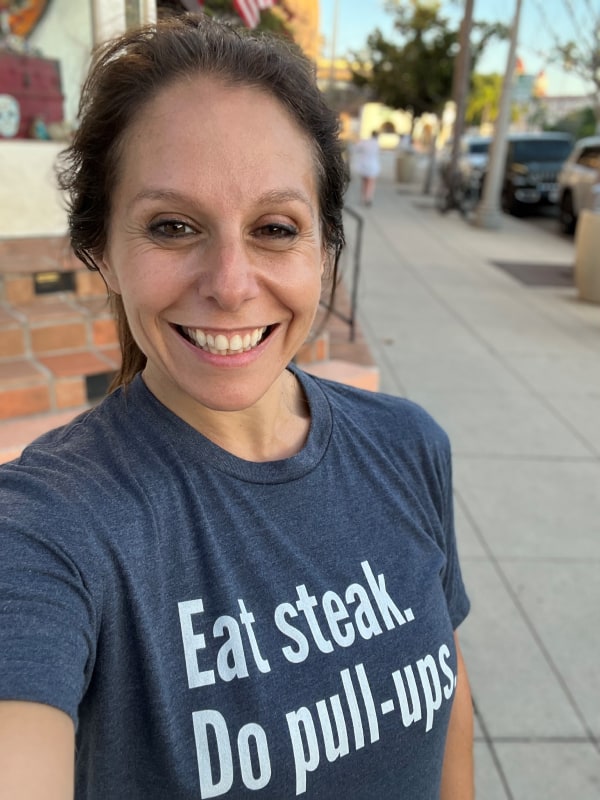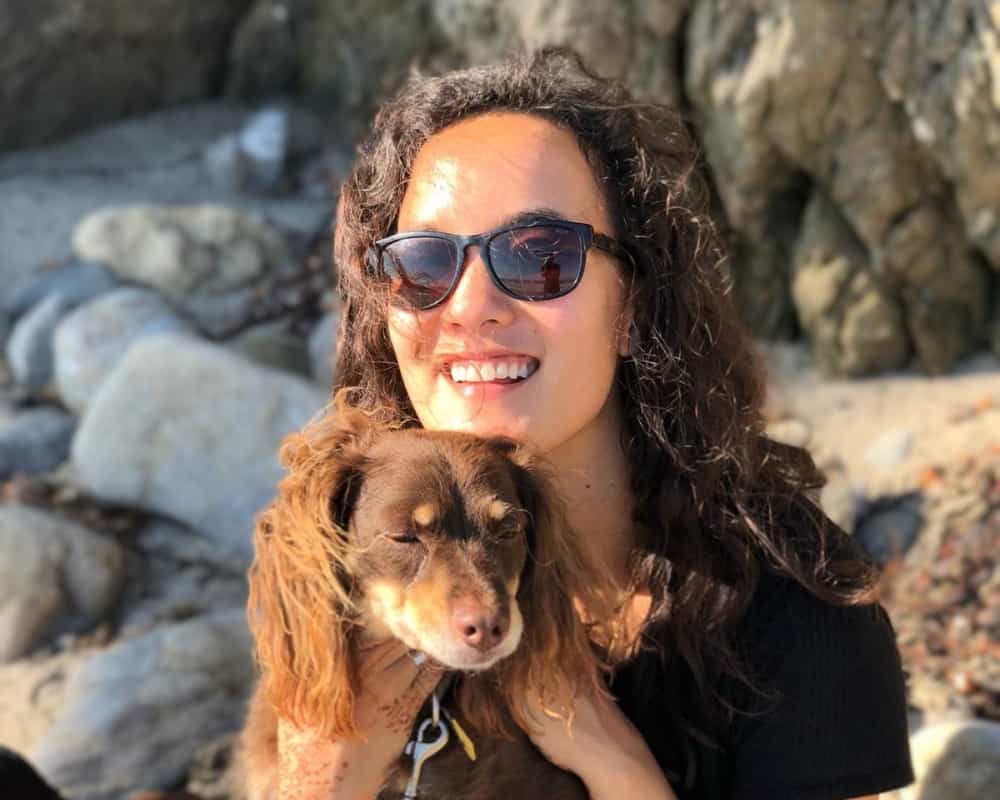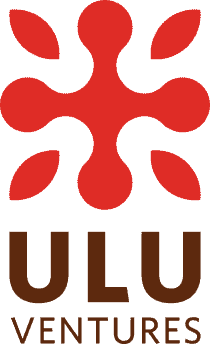Getting bullied as a child is what ignited Ulupreneur Isoken Igbinedion to embark on her lifelong mission. Born in Nigeria, her family immigrated to the US when she was very young. In the nearly all-White community of Palm Springs, California, however, she and her sisters were the only Black students at their school—and all too often the other kids made fun of the texture of her hair, with some even equating her hair to a “Chia Pet.” To fit in at age 10, Iso begged her mother to allow her to chemically straighten her hair. She was so excited to get rid of her curly frizz, but much to her dismay, the harsh chemicals caused her hair to fall out.
Although Iso struggled to understand her African background and culture, that journey helped launch her decades-long search for solutions that allowed her to feel confident in places where people didn’t look like her. She experimented with all types of hair products—extensions, braids, and so on—and decided wigs were the best option because she could wear them and still grow a natural, healthy head of hair. But even wigs presented a problem: their styles and customizations usually weren’t user-friendly.
After graduating from college, Iso worked in retail distribution before landing a job at Amazon. Once there, she saw how AI technology can improve people’s lives and wanted to figure out how to use it to help women in marginalized communities have hair they could feel confident in.
While pursuing an MBA at Wharton in entrepreneurship and innovation, Iso realized she had an invaluable resource in her own family for determining how AI might solve the wig problem—her sister, Ifueko.
With a PhD in computer science from MIT and experience in building drone technology for the US military, Ifueko Igbinedion specialized in facial recognition. After spending more than two years figuring out how to capture relevant data, the sisters formed a company called Hairtelligence in 2020 and joined forces with another co-founder, Simon Kendle, to launch Parfait in 2022. They raised $5M in funding from Serena Ventures, Unshackled Ventures, Ulu, and others.

We caught up with Iso at an exciting time for Parfait and the technology that’s changing the game for anyone looking for wigs or hair extension products.
Do you have tips for other founders fundraising?
You have to build relationships with venture firms far in advance of the actual raise. I was at Wharton when I was raising our initial round of funding; I had access to dinners where I could meet venture capitalists and angels. My instructors provided introductions to people where I could explain what I wanted to build and what kind of capital I needed. Bringing those investors along the journey helped to secure our first round of funding with Unshackled Ventures. But as you get deeper and start to raise more money, it becomes a much longer and arduous process, and the level of diligence completely changes.
“Being a good storyteller and being able to share a clear narrative of why this is a space that really deserves innovation and technological investment helped me raise my first large round of funding.”
How did you get your first customers?
We built a waitlist and started telling people about what we wanted to build, which is completely out of the norm of what’s available in the industry right now. So telling people our story allowed us to build a community around this group of people who use this product and who really wanted to support us.
The biggest thing we learned was that there’s just so much mistrust in this market. You’re typically going on websites with inaccurate pictures and descriptions of the end product. There are often no refunds, so people are very hesitant to purchase new products in this category without extreme trust in the brand or high recommendations from influencers, friends, and/or family. We strived to build trust in the technology and the team. We let our community know that we would be the right stewards for the data that we need to create these products at scale.
What have been the biggest challenges?
Supply chain issues have been a huge challenge for us, especially with the lockdowns in China. Also, sourcing raw materials is difficult and the cost of materials has gone up significantly. Managing that supply chain to ensure you can deliver on your customer promise in a timely manner is a huge part of what we provide to our customers. So, we needed to diversify our vendor base and build deep relationships to prioritize them.
Looking at the macroeconomic environment now, it’s very different from when we raised our initial round and we are definitely concentrating on conserving cash. We are looking to build a viable business that can stand on its own without the need for significant venture dollars to sustain itself.
How has your experience been in working with Ulu Ventures?
Ulu partners have been some of our greatest supporters, beginning with Maria Salamanca when she was at Unshackled Ventures.
“Ulu really helped us dive deep into the market to understand the true opportunity through the market-mapping process.”
It opened our eyes to how we can approach driving growth across some of these different channels that we’re exploring. It also showed us how we can be more strategic about acquiring the different kinds of customers in the segment because it’s so fragmented. That level of analytic rigor and the ability to use strong data to help us forecast has been very valuable.
What are your dreams for Parfait?
In the next five years we want to build the infrastructure for the industry to make it easier for stylists and retailers to be able to serve consumers with high-quality products at prices they can afford. Right now there is no automation; it takes about 50 hours to hand-make these small five-by-five lace wig pieces that replicate the scalp. We’re seeing manufacturers in China scale this by using sweatshops and unfair labor practices, often providing unlivable wages. Automation solves a lot of problems by scaling these products faster and cheaper, and reduces the cost of goods sold for the industry.
“ Automation can help alleviate ethical questions, by giving us the ability to transparently source where the hair is coming from, so that we can ensure those who are providing these products to us are paid fairly and ethically.”
We want to make sure that we are at the forefront, providing that infrastructure to all retailers, all consumers, all stylists—in other words, to provide that kind of experience to anyone who wants to wear wigs and extensions.




